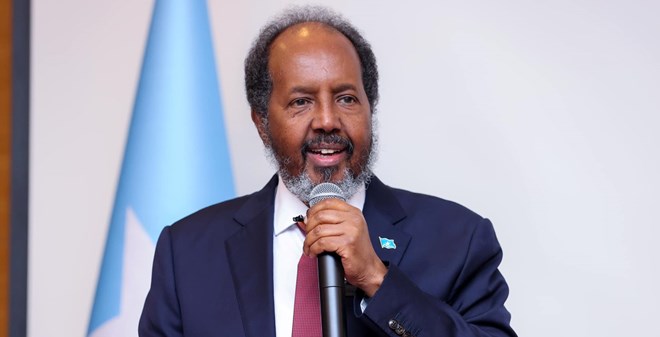Former Petroleum Minister Mohamed Mukhar authored an opinion piece that appears to undervalue the strides Somalia has taken in its post-conflict recovery. The article presents a critical perspective on Somalia’s challenges with implementing agreements, policies, laws, and international conventions since the establishment of its federal government institutions in 2012. To present facts accurately, it is important to acknowledge different perspectives and acknowledge the progress Somalia has achieved despite challenging situations.
Firstly, the article underestimate the progress Somalia has made, given its post-conflict context. Rebuilding institutions and governance practices in a nation recovering from prolonged civil strife is a monumental task. The adoption of the Provisional Constitution itself was a significant step forward, laying the foundation for future governance and legal reforms, and should not be understated.
Secondly, the practicalities of implementing complex policies such as the National Environmental Policy are challenging for any nation, more so for one with limited resources. The mere establishment of such policies indicates a directional shift towards recognizing and tackling environmental issues, which is a progressive move for Somalia.
Regarding the Regions and District Law, it’s important to consider that the devolution of power and the creation of local governance structures is a process that can take decades to evolve. Moreover, in regions where such structures were non-existent, even partial implementation represents substantial progress.
The article also cites the failure to implement national elections based on the one-person-one-vote principle as a significant shortcoming. However, it’s critical to recognize that conducting nationwide elections in Somalia involves overcoming enormous logistical, security, and political challenges. The effort to hold such elections, despite the delays, reflects a commitment to democratic principles.
On the international front, the initiation of bilateral and multilateral trade agreements showcases Somalia’s intention to reintegrate into the global economy. Even limited cooperation can be seen as a positive development, given Somalia’s long isolation from international trade relations.
The article points out that Somalia faces issues such as corruption, a lack of transparency, and insufficient coordination among stakeholders. While these are valid concerns, it’s essential to acknowledge the context in which the Somali institutions are operating. Efforts to tackle these issues are ongoing and require time, sustained support, and stability to take root effectively.
It is also important to appreciate the role of the international community and the support provided to Somalia. International partnerships and aid can be instrumental in overcoming the outlined challenges, and their continuation and expansion can be seen as an endorsement of Somalia’s potential and efforts.
The author may not have given due credit to the significant strides Somalia has made in security and federal state formation. The country’s efforts against the terror group Al Shabab, resulting in the recapture of over 120 towns and villages, reflect a considerable achievement in bolstering national security and extending government influence. This success against a persistent insurgency is a testament to the courage and growing effectiveness of the Somali security forces, as well as the support from international partners.
Furthermore, the formation of four federal states is a critical milestone in Somalia’s political development. The federalization process is a complex and delicate task in any post-conflict society. It involves navigating clan dynamics, power-sharing, and resource distribution, all while maintaining national unity. The establishment of these states is a clear indicator of Somalia’s progress towards a more structured and representative governance system. It demonstrates the political will and capacity to negotiate and maintain a federal structure, which is a foundational component of Somalia’s long-term political stability and governance.
These points of progress are crucial to understanding the full picture of Somalia’s journey post-2012 and provide a more balanced viewpoint on its challenges and accomplishments.
Lastly, the narrative could benefit from acknowledging the resilience of the Somali people and their government’s agency in navigating these challenges. Somalia’s journey is not unique in the context of post-conflict nations, and comparing it with similar trajectories could offer a more balanced view of its progress and potential.
While Somalia indeed faces significant challenges, this article would emphasize the contextual complexities, the progress made under challenging circumstances, and the potential for future advancements with continued support and stability.
Ismail D. Osman: Former Deputy Director of the Somalia National Intelligence & Security Agency (NISA). Specializing in writings on Somalia, the Horn of Africa’s security, and geopolitical landscapes with an emphasis on governance and security. Contact: osmando@gmail.com. Twitter: @osmando.







